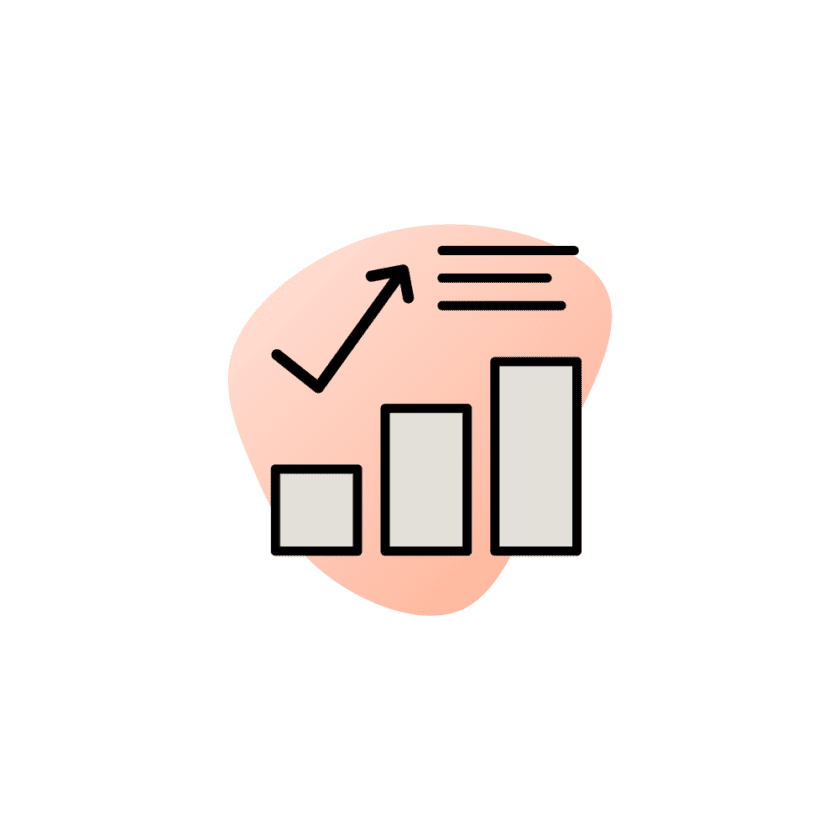Our expertise spans every phase of the medical device and biopharma lifecycle, with staffing support tailored to accelerate speed-to-market, ensure regulatory alignment, and strengthen continuity across your critical programs.
Jump to section: Pharma | Biotech | Medical Device IT & Engineering
Driving Scalable, Compliant Innovation in Pharmaceutical Science
Talent + Technology Solutions for Pharmaceutical Excellence
Pharmaceutical innovation requires precision, performance, and unwavering regulatory alignment. From drug discovery and clinical execution to manufacturing and global commercialization, Dexian delivers the digital, data, and scientific experts who keep Pharma organizations agile and compliant—no matter the scale.

Pharma Talent & Technology Focus Areas
Why Dexian for Pharma?
End-to-End Lifecycle Support
From early R&D to post-market compliance
Compliance-Driven Speed to Scale
Rapid access to talent with 21 CFR Part 11, GxP, HIPAA, and EU MDR expertise
Flexible Engagement Models
Contract, FTE, and consulting roles tailored to clinical and commercial needs
Biotech: Accelerating Discovery Through Data, Science, and Precision Talent
Talent + Technology Solutions for Biotech Innovation
In Biotech, progress is powered by breakthrough science and exacting execution. From computational biology to clinical scale-up, Dexian delivers niche scientific, data, and digital talent to help Biotech organizations drive discovery, streamline trials, and bring life-changing innovations to market faster.

Biotech Talent & Technology Focus Areas
Why Dexian for Biotech?

Discovery-Focused Expertise
Scientific, analytical, and regulatory talent with proven impact across biotech functions

Agile, Scalable Resourcing
Rapid ramp-up for pivotal trials and next-gen therapies

Data-Driven Outcomes
Deep strength in Python, R, Snowflake, and cloud-native analytics
Delivering Specialized Talent Where It Matters Most

Dexian partners with leading medical device and biopharma organizations to deliver staffing support that drives measurable impact across innovation, compliance, and commercialization.
Project highlights include:
-
- 128 roles placed over five years to support IT infrastructure, systems integration, and compliance efforts for a global eye care company undergoing a corporate spin-off.
-
- 234 IT and digital professionals deployed to a biomedical innovator undergoing digital transformation including cloud migration, data science, and connected health systems to help power the growth of their Digital Health organization.
-
- 39 highly specialized consultants placed at a global pharmaceutical leader across six states, providing regulatory analysts and data engineers for critical compliance initiatives.
-
- 23 placements in niche regulatory and IT roles for a California-based medtech firm following a major merger enabling business continuity and strategic growth through trusted talent solutions.
Medical Device IT & Engineering Staffing Solutions
As innovation in medical devices accelerates, companies are navigating increasingly complex intersections of digital systems, regulatory compliance, and global manufacturing. From embedded software to post-market surveillance, securing specialized talent across the medical device product lifecycle is critical to sustaining speed, safety, and scalability.
Dexian delivers high-impact IT and engineering professionals for every stage of the medical device lifecycle—supporting R&D, quality systems, manufacturing, labeling, and digital transformation. Whether you need support for a product launch, quality remediation, or system validation initiative, our staffing experts understand the unique demands of FDA 21 CFR Part 820, ISO 13485, IEC 62304, and EU MDR.

Specialized Roles We Support
Dexian’s delivery model ensures rapid access to cleared, pre-vetted professionals ready to contribute from day one—reducing time-to-hire while maintaining regulatory alignment. Our tailored staffing solutions span contract, contract-to-hire, and full-time roles, built to scale with your innovation needs.

Product Design & R&D Engineering
- Biomedical, Mechanical, and Software Engineers
- Human Factors & Usability Engineers
- Design Control & Rapid Prototyping Specialists
- Embedded Software and Cybersecurity Experts (IEC 62304)

Packaging, Labeling & Global Compliance
- Packaging Engineers (Sterile Barrier & Transport)
- Labeling Compliance Specialists (UDI, EU MDR)
- Technical Writers (IFUs, Translation Coordination)
- Serialization & Traceability Analysts

Quality Systems & Regulatory Compliance
- Quality Engineers (Design, Manufacturing, Supplier)
- CAPA & Non-Conformance Investigators
- QMS Auditors (FDA, MDSAP, ISO 13485)
- Regulatory Affairs Specialists (EU MDR, FDA 510(k), UDI)

Manufacturing, Testing & Process Automation
- Manufacturing & Process Engineers
- Validation & Test Engineers (IQ/OQ/PQ, V&V)
- Robotics, PLC, and Automation Technicians
- Supply Chain & Procurement Professionals
Why Dexian for Medical Device Staffing?
- Deep expertise in medical device regulations and lifecycle hiring
- End-to-end talent solutions across engineering, IT, QA/RA, and manufacturing
- Scalable support for EU MDR, FDA, ISO, and global regulatory frameworks
- Seamless onboarding and credentialing for faster project readiness
Power your next breakthrough with Dexian—where talent meets technology to move medical devices from concept to commercialization.
Let's Work Together
If you’re a job seeker looking for information about a position, please reach out through our Contact Us Form to connect with the appropriate team. We will not respond to job applications or job-related questions sent to this email address.
Life Sciences Staffing FAQs
Why is specialized staffing important for life sciences companies?
Specialized staffing is essential in life sciences due to the sector’s complex regulatory landscape, rapid innovation cycles, and the need for highly technical skills. Hiring talent with a deep understanding of scientific processes, clinical protocols, and compliance requirements is key to driving new therapies and products from development to market safely and efficiently.
What types of roles are most in demand across the life sciences industry?
Demand is high for roles in clinical operations, regulatory affairs, quality assurance, manufacturing, research and development, and supply chain. Examples include Clinical Research Associates (CRAs), Regulatory Affairs Specialists, Quality Assurance (QA) and Quality Control (QC) professionals, Process Engineers, Scientists, Lab Technicians, and experts in pharmacovigilance and medical affairs. These positions play critical roles in ensuring compliance, advancing research, and maintaining product quality.
How do staffing partners streamline clinical trial operations?
Staffing partners can provide access to experienced clinical professionals who support site activation, patient recruitment, data management, and trial monitoring. By supplementing internal teams, organizations can reduce trial delays, ensure regulatory compliance, and improve data quality—all of which are essential for successful trial outcomes.
Why is regulatory compliance expertise critical in life sciences staffing?
Regulatory affairs professionals are vital for preparing and submitting documentation to regulatory bodies like the FDA or EMA, including INDs, NDAs, and BLAs. Their knowledge ensures that submissions meet complex global standards and that organizations maintain compliance throughout the product lifecycle.
What does it mean to staff for GMP, GxP, GLP, and GCP environments?
Staffing for regulated environments like GMP (Good Manufacturing Practice), GLP (Good Laboratory Practice), and GCP (Good Clinical Practice) means sourcing talent who are trained in relevant guidelines and accustomed to working within strict quality systems. This expertise is essential for ensuring product safety, regulatory compliance, and successful audits or inspections.
How do life sciences organizations ramp up manufacturing or technical operations teams?
Organizations often need to scale their teams rapidly during clinical-to-commercial transitions or facility expansions. Bringing in specialized talent—such as Manufacturing Associates, Engineers, or Quality professionals—supports efficient scale-up, technology transfer, and operational readiness while maintaining compliance and quality.
What unique staffing challenges do emerging biotech and CGT (cell and gene therapy) companies face?
Early-stage and CGT companies often operate with limited resources and rapidly evolving needs. Flexible staffing solutions, including fractional consultants and project-based teams, can help these organizations scale quickly and access specialized expertise without overcommitting fixed resources.
Why are laboratory and R&D roles crucial in life sciences?
Laboratory and R&D professionals—such as Scientists, Research Associates, and Lab Technicians—drive the discovery, development, and validation of new therapies and technologies. Their hands-on skills in molecular biology, bioanalytical chemistry, immunology, and related fields are foundational to preclinical and translational research success.
How do organizations ensure new hires meet regulatory and industry standards?
Thorough vetting processes are essential, prioritizing candidates with proven experience in regulated environments and familiarity with standards like FDA, ICH, GxP, and ISO. Experience with SOPs, audits, and inspections is also valuable, helping ensure seamless integration and ongoing compliance.
What staffing models are common in life sciences?
Life sciences organizations often use a mix of contract, contract-to-hire, direct hire, and project-based staffing. This flexibility allows them to adjust resources in response to project timelines, regulatory requirements, or changing business priorities.
Where are life sciences talent hubs located in the U.S.?
Key life sciences hubs include Boston, San Diego, San Francisco, Raleigh-Durham, and Pittsburgh, among others. These regions offer concentrated pools of specialized talent and a strong ecosystem of research institutions, biopharma companies, and clinical sites.
How quickly can specialized roles typically be filled?
Timelines vary based on role complexity and talent availability, but contract positions can often be filled within days, while direct hire placements may require several weeks. Having access to a pre-vetted candidate pool and established networks can accelerate the process significantly.
How do organizations approach high-volume or project-based hiring?
High-growth scenarios—such as new facility build-outs, clinical trial expansions, or product launches—require scalable hiring strategies. These may include partnering with firms that offer managed staffing programs, leveraging technology to streamline recruiting, and deploying dedicated project teams.
What distinguishes an effective staffing partner in life sciences?
The most effective partners combine a deep understanding of scientific and regulatory environments with a consultative, relationship-focused approach. They anticipate market trends, understand urgent and complex needs, and deliver talent who can make an immediate impact — all while fostering long-term collaboration.
